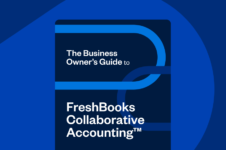Finally having a business credit card can feel like the dream. But you must first evaluate whether it's the best move for you.

When I first started working as a freelancer, I was thrilled to call myself a business owner. All I could think of were all the cool loans, opportunities, and credit cards I could get with my own company. So I went in search of the biggest business credit card I could find. I wanted to rack up tons of rewards and get money back at the end of the year. But what did I get instead? A $120 annual fee that wiped my minimal rewards out completely.
Now, that didn’t mean I couldn’t benefit from my business credit card. Along with the “cons”, there are some clear “pros”. In today’s article, I’ll take you through some key points to help you evaluate if a business credit card is right for you.
Business Credit Card Rewards Aren’t Tailored for Freelancers
Did you know the average business owner can get $1,750 back a year using the Chase Ink Classic card? This sounds great, but the study that gathered this data assumes you’ll spend $55,000 per year on your credit card. If you’re only in it for the rewards, think again.
And so we see a major issue with business credit cards: They’re not designed for most freelancers, who typically spend only a couple hundred bucks a month on business expenses. If you aren’t spending 5-figures on expenses, the rewards won’t add up to huge financial gains.
The Reasons Why You Should Really Use Business Credit Cards
You can’t rely on cash back bonuses or rewards points as a freelancer, but you can still benefit from having a credit card for work. Here are some reasons why:
- Build business credit: Your business credit is different than your personal credit, and you’ll need it to get a business loan. The bank can look at your personal income and credit, but it’s harder to land large capital that way.
- Manage expenses: It’s easy to keep track of your overhead when you put all of the transactions on one card. Rather than buying office supplies with the same money you use for Cheerios and toe socks, you can separate your money to budget better in the future.
- Prepare taxes: If you keep all of your costs on one credit card, all you need is a copy of your card statements to total your loss for the year. Then you’ll easily be able to figure out your profit level, taxable income, and all that other fun stuff that can be a nightmare if your personal expenses are mixed up with your business expenses.
- Share funds: If you are in a partnership or you have a couple contractors working for you, you can give them access to your company’s money by way of a business credit card. You can get the card in the other person’s name so you know who’s spending what. Then you can spot any problems that may arise.
What to Look for in a Business Credit Card
If the info above has convinced you to apply for a business credit card, here are some things to watch out for:
- Intro rates vs. Actual rates: A lot of card companies will offer low APRs and annual fees at first, but then they increase those rates after a year or so. Don’t get stuck with a card that you can’t afford long-term.
- Annual fee: This is money that you have to pay every year just for using the card. If you don’t earn enough rewards to cover the cost, you’re essentially losing money by keeping the card around.
- APR: This is the annual percentage rate, or the interest you’ll have to pay if you don’t pay off your balance. If you do manage to pay this off every time you buy something, the APR won’t matter at all.
- Balance transfer fees: These fees occur when you move a balance from one credit card to another. You should only have to worry about this if you’re trying to consolidate your debt.
- Foreign transaction fees: These fees happen when you buy items from another country. If most of your business involves drop shipping or travelling overseas, look for the lowest foreign transaction costs possible.
- Credit acceptance: If you know your credit is bad, don’t apply for a card that requires excellent credit. This will make someone pull your credit report for no reason, and excessive pulls can lower your score over time.
- Rewards: Even though the rewards you get will probably be minimal, you should look for a card that complements your spending. For example, if you mostly drive for your job, find a card with great gas rewards..
Don’t get fixated on the way a card looks or the money it has to offer. Compare all the terms to find the best one for your situation.
There is a lot more to business credit cards than meets the eye. You may not be able to fully enjoy the rewards from them, but you can at least build your credit and save some headache meds when tax season hits.
I use my card to pay for every single thing I need for my business, which allows me to see how much I need to save for the next month. Simply put, I use my card as a wallet-sized accountant, keeping me in line from month to month.
Do you plan on getting a business credit card? And for those that already have one, share how you’re using it in the comments below. I’d love to hear everyone’s tips.
Written by FreshBooks
Posted on September 26, 2017





